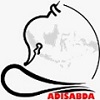Effectiveness of the Utilized Interview Techniques to Enhance Speaking Skills of Students
DOI:
https://doi.org/10.26877/educalingua.v1i1.216Keywords:
Interview Techniques, PREP and STAR Method, Speaking Skills, Pre-survey, Post-surveyAbstract
Speaking is regarded as one of the most difficult aspects of language learning because learners find it difficult to express themselves and are affected by factors that led them to be reluctant to speak. Hence, this study 1. determined the factors affecting the skills of the students in speaking English. 2. Documented the utilization of the interview techniques to enhance the speaking skills of the students and discussed the challenges encountered and 3. Analyzed the perceived effectiveness of the utilized interview techniques to enhance the students' speaking confidence. The study used a mixed-methods approach using pre- and post-surveys, interviews, and group discussions. The respondents were the 22 Grade 10-Abad students of Tinago National High School. Results showed that students struggle to speak English because of the following factors: pronunciation, vocabulary, fear of public speaking, criticism, and shyness. Using criteria as an assessment tool, it revealed that there was an improvement of 20% in the students’ English-speaking skills when the interview techniques of PREP and STAR methods were used as an activity, concluding that the usage of utilized interview techniques enhanced the English-speaking skills of students.
References
Al Hosni, S. (2014). Speaking difficulties encountered by young EFL learners. International Journal on Studies in English Language and Literature (IJSELL), 2(6), 22–30. www.arcjournals.org
C. Separa, L. A., J. Generales, L., & S. Medina, R. J. (2020). Situational speaking difficulties of english as second language learners in the philippines. Journal of Southeast Asian Studies, 25(1), 144–167. https://doi.org/10.22452/jati.vol25no1.8
Dong, Z. (2012). No TitleФормирование парадигмальной теории региональной экономики. Экономика Региона, Kolisch 1996, 49–56.
Florez, M. A. C. (1999). Improving adult English language learners ’ speaking skills. Burns, June, 1–4.
Leong, L., & Ahmadi, S. M. (n.d.). c r v i h o e f.
Lestari, H., Mahmud, M., & Salija, K. (2018). The Ways To Overcome the Problems in Speaking English Encountered By the Students of Islamic Boarding School of. 1–8.
M, A. (2021). Difficulties of speaking english that encountered students (Case study en-nuhud secondary schools). Frontiers in Neuroscience, 14(1), 1–13.
Mainwaring, L. M., & Krasnow, D. H. (2010). Teaching the dance class: strategies to enhance skill acquisition, mastery and positive self-image. Journal of Dance Education, 10(1), 14–21. https://doi.org/10.1080/15290824.2010.10387153
Prahaladaiah, D., & Irudayaraj, A. (2019). Factors affecting the students speaking english as a second language in schools. Online International Interdisciplinary Research Journal, {Bi-Monthly}, 09. www.prb.org
Pratiwi, N. P. A., Suryani, I., & Suarnajaya, I. W. (2020). Investigating the inhibiting factors in speaking English faced by senior high school students in Singaraja. International Journal of Language Education, 4(1), 48–58. https://doi.org/10.26858/ijole.v4i2.10054
Safitri, H., Rafli, Z., & Dewanti, R. (2020). Improving students’ speaking skills through task-based learning: An action research at the English department. International Journal of Multicultural and Multireligious Understanding, 7(6), 88. https://doi.org/10.18415/ijmmu.v7i6.1647
Wahyuni, S., Suharni, S., & Retanida, R. (2020). Storytelling method using big book to improve children’s listening skill. Journal of Early Childhood Care and Education, 3(1), 49. https://doi.org/10.26555/jecce.v3i1.1692
White, L., Bardovi-harlig, K., & Ellis, N. C. (2008). September 2008 Volume 12, Number 2. 12(2), 2–6.








